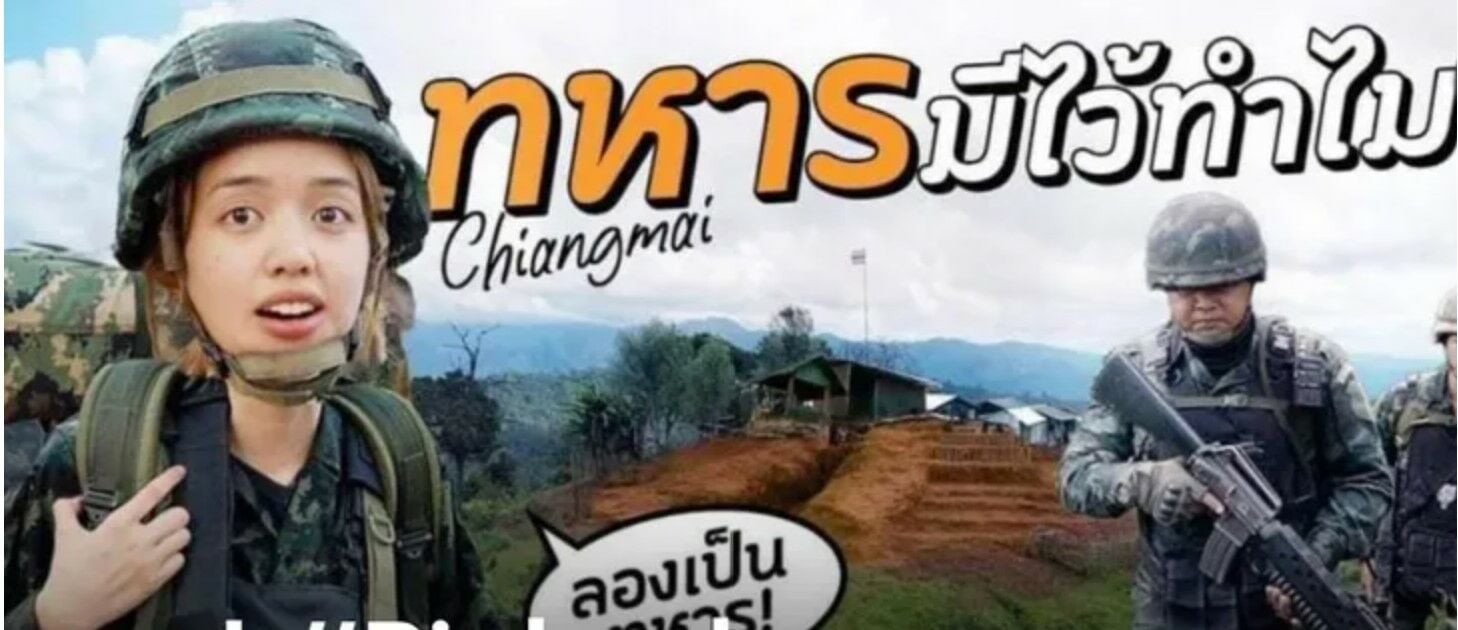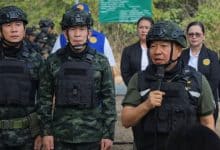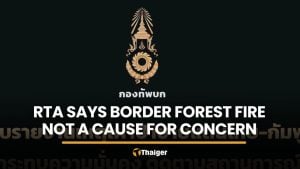YouTube sensation’s military adventure sparks controversy

A Thai YouTube star finds herself at the centre of a military storm as her latest video sparks a frenzy of controversy.
Accusations fly as critics question the Royal Thai Army (RTA)’s involvement in what some dub a cunning information operation (IO).
The RTA denied claims that a popular YouTube channel, Pigkaploy, was manipulated in a so-called information operation. Ploypailin Thangprabhaporn, better known as Ploy, the channel’s main host and a prominent actress, posted her latest video: What Do We Have Soldiers For: Episode 1, detailing the lives of Thai soldiers stationed on the northern border with Myanmar.
Amidst social media speculation that the RTA orchestrated the video, Ploypailin defended her creation, asserting it stemmed from a genuine curiosity about the missions of soldiers in border areas. Despite this explanation, the controversial video has mysteriously disappeared from Pigkaploy’s 1.23 million-subscriber-strong channel. Copies, however, persist on other platforms like TV5HD Online and Thai Press.
Plans for two additional episodes exploring soldiers’ lives on the eastern and southern borders hang in the balance as uncertainty clouds the channel’s future. The intrigue deepens as observers wonder if the Army’s influence played a role in the sudden removal.
An RTA source refuted the allegations, stating that the RTA has no favourites and has accommodated various media outlets in the past. The source confirmed that the RTA instructed relevant border units to facilitate Ploypailin and her team during their stay.
Addressing concerns, a Pha Muang Force source overseeing the region featured in the video dismissed the idea of a publicity stunt, highlighting the routine nature of such visits. The source asserted that other media outlets had covered military missions at Thailand’s border areas, categorically denying any involvement in an IO, reported The Nation.
In a backdrop of ongoing debates surrounding military spending and calls for the cancellation of compulsory conscription, critics question the necessity of Thailand’s military in a world seemingly dominated by trade wars rather than physical combat. This controversy adds fuel to the fire, stirring further scepticism about the military’s role in contemporary Thailand.
Latest Thailand News
Follow The Thaiger on Google News:


























